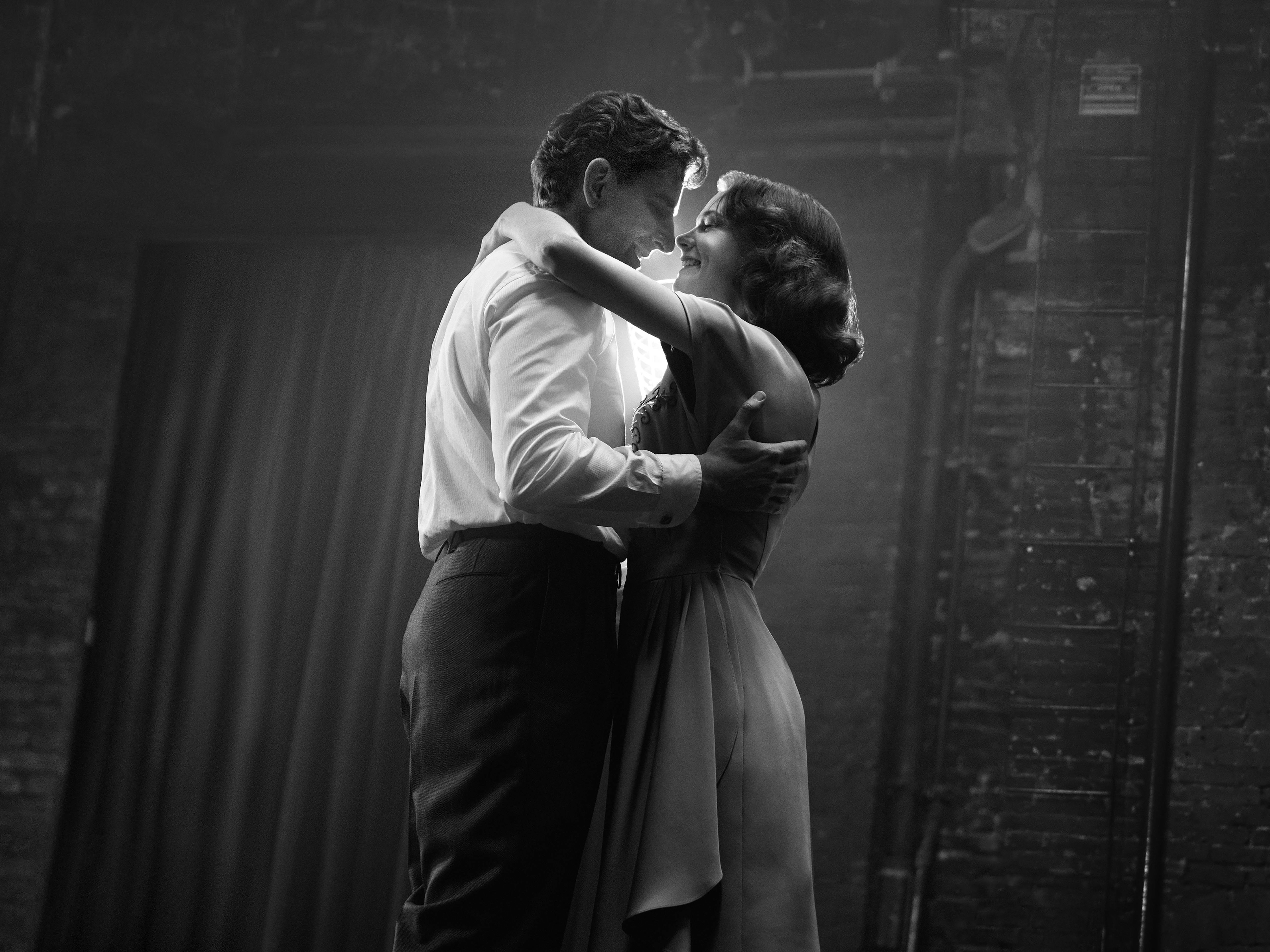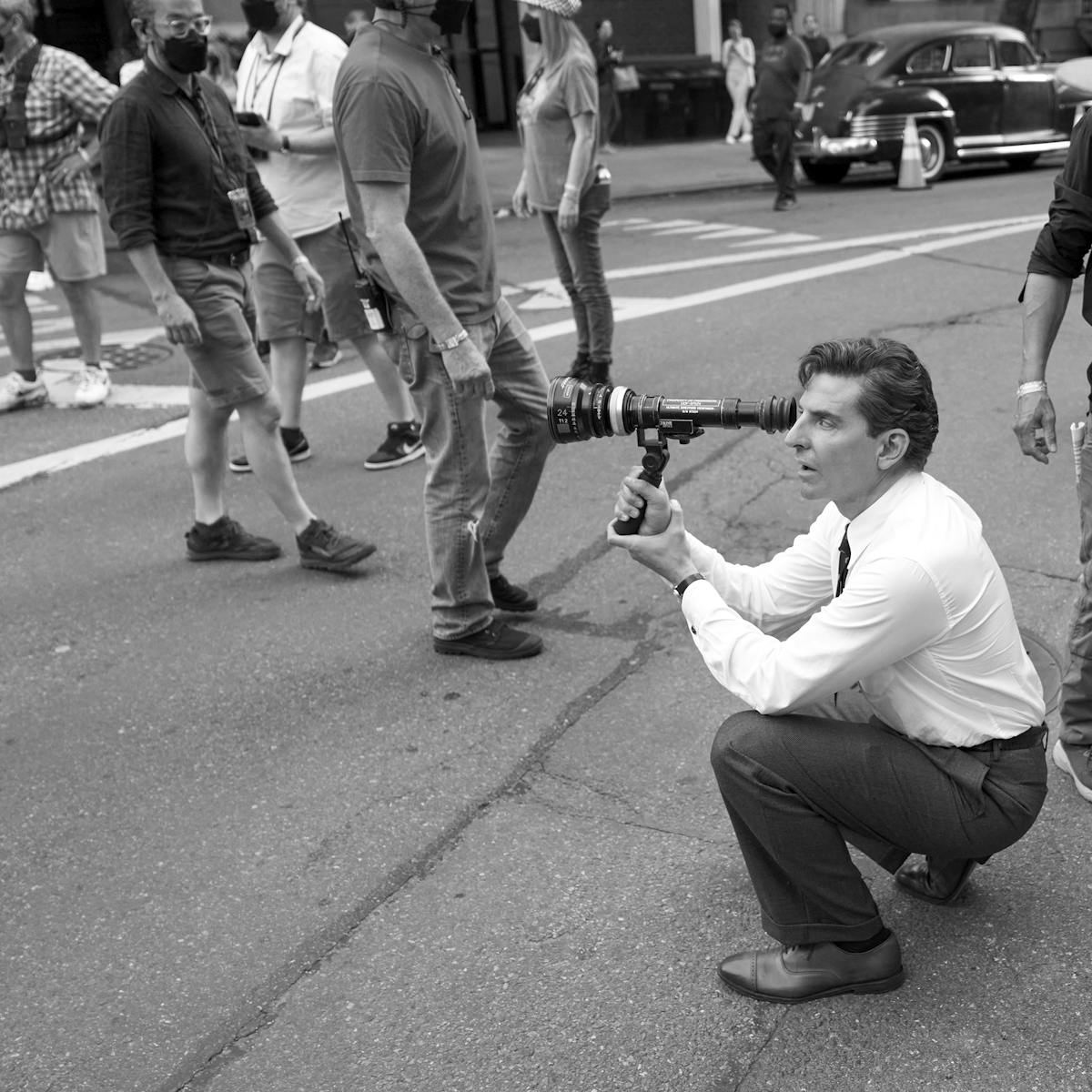In Maestro, Bradley Cooper and Carey Mulligan portray the larger-than-life love story of Leonard Bernstein and Felicia Montealegre Cohn Bernstein.
As Bradley Cooper and Carey Mulligan prepared for their starring roles in Maestro, they tapped into something known as dreamwork, an intensive technique actors use to unpack their subconscious minds and make instinctively authentic choices. Cooper and Mulligan, who play twentieth-century icon Leonard Bernstein and his wife — the actor, artist, and activist Felicia Montealegre Cohn Bernstein — from their first meeting all the way through their lifelong marriage, needed to create a realistic closeness, the unbreakable bond at the heart of their characters’ unconventional marriage. “If they don’t care about us, there is nothing,” Cooper recalls telling his co-star. And once they concluded their dreamwork by “baring our souls to each other,” as Cooper puts it, they knew that they’d found the right chemistry.
The experience, which Mulligan remembers as “totally invaluable,” informs the astonishingly nuanced performances each delivers in the film, which arrives as the directorial follow-up to Cooper’s Oscar-winning 2018 blockbuster, A Star Is Born. Eschewing the conventions of a traditional biopic, Maestro examines the singular life of the legendary musician, conductor, composer, teacher, and author through the lens of his relationship with Felicia. The film depicts their genial first meeting at a party thrown by mutual friends, the joys of early parenthood and career success, and, as the decades pass, the painful episodes they weather together as a family. Maestro is a paean to the ecstatic highs and anguished lows that accompany a life in pursuit of love, family, and art.

Leonard Bernstein (Bradley Cooper) and Felicia Montealegre Cohn Bernstein (Carey Mulligan)
Determined to honestly explore the complexity of the Bernstein marriage, Cooper found himself confronting important questions that tested him, not only as a performer but as a filmmaker. “I wanted to dedicate the real estate of the film to them,” Cooper says. “How could I serve the truth of his life within this marriage while not shifting the focus away from them? I wanted to make a movie about these two because that’s frankly what I found encapsulated everything. What is it to be these people at these certain time periods? What’s it like to be in this heterosexual nuclear family structure yet have these truths about each other?”
Cooper’s involvement with the film began roughly six years ago when Steven Spielberg handed him an early draft of the script penned by Josh Singer (Spotlight), hoping the actor would consider playing the lead role. Cooper was immediately intrigued. When Spielberg later realized that his other commitments — including directing an adaptation of West Side Story, which Bernstein composed — would prevent him from stepping behind the camera on Maestro, Cooper put his hat in the ring.
He invited Spielberg and his producing partner Kristie Macosko Krieger to an advance screening of A Star Is Born, which had not yet been released. “Twenty minutes into the movie I slid over a couple of seats to where Bradley was sitting and asked him if he’d direct Maestro,” Spielberg says. “That’s how impressed I was.”
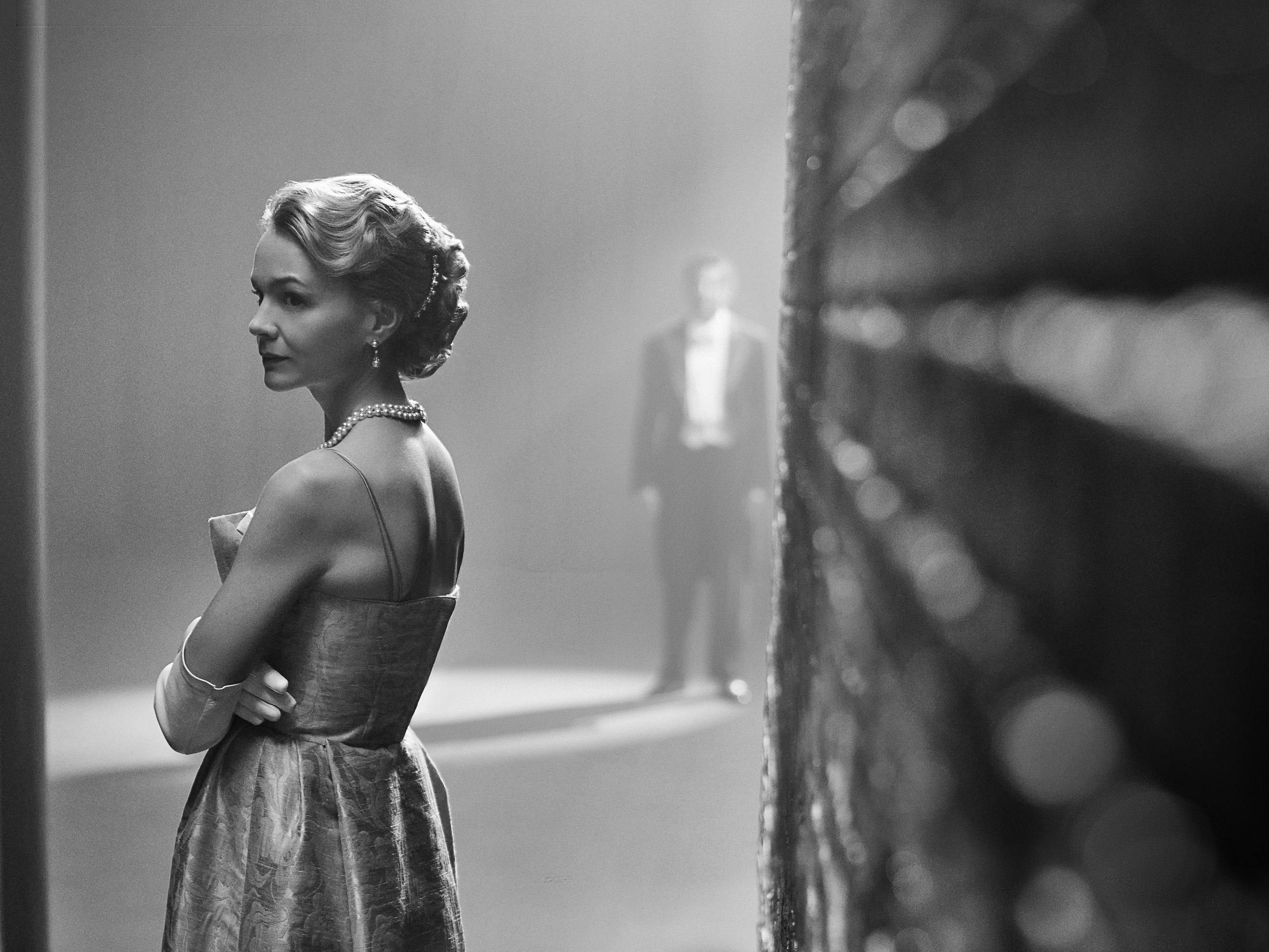
Felicia Montealegre Cohn Bernstein (Carey Mulligan) and Leonard Bernstein (Bradley Cooper)
I wanted to make a movie about these two because that’s frankly what I found encapsulated everything. What is it to be these people at these certain time periods?
Bradley Cooper
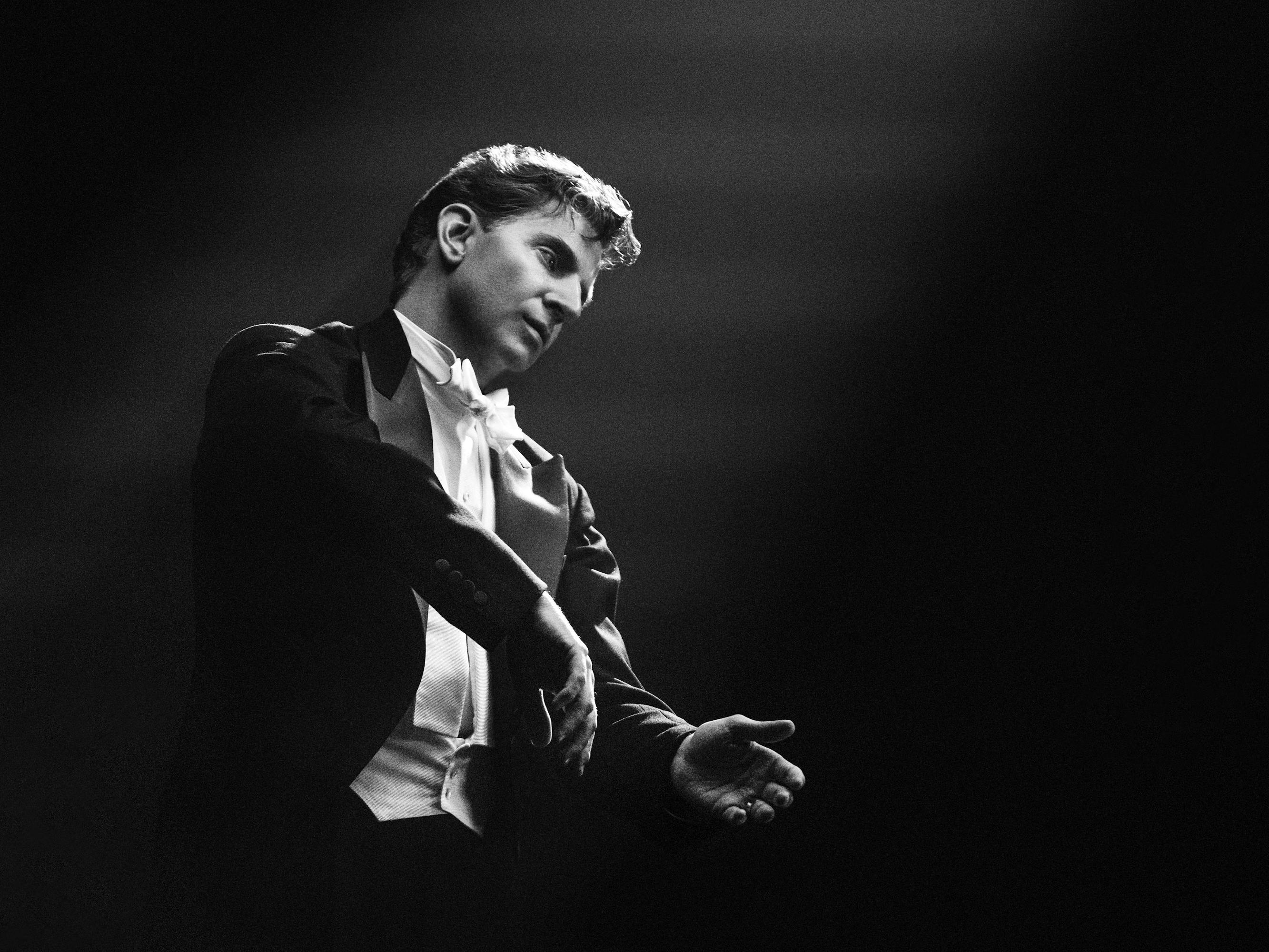
Leonard Bernstein (Bradley Cooper)
Producing the film alongside Spielberg and Macosko Krieger, Cooper collaborated with Singer on a new screenplay focusing on the love story that served as the through line in Leonard’s life. “Bradley and co-writer Josh Singer found an innovative way to explore this legend’s life and to reveal the love story at its core: Bernstein’s tortured and enduring love affair and marriage to Felicia Montealegre,” says Spielberg.
To play Felicia, Cooper turned to two-time Academy Award nominee Mulligan, whom he’d known socially for some time. “Bradley has always been so supportive of my theater work, but Felicia was just such a massive job,” says Mulligan, famed for turns in such films as An Education and Promising Young Woman. “It was just the most exciting role and felt akin to some of the roles that I’ve been privileged to play onstage but had not found the equivalent of onscreen so much. It was so rich and there was so much breadth to her character and so much change in her life. I was just amazed that he was asking me to do it.”
In addition to the dreamwork, Cooper and Mulligan teamed up to perform as narrators onstage in a Philadelphia Orchestra production of Leonard’s Candide, under the baton of Maestro music consultant Yannick Nézet-Séguin. They also met extensively with members of the Montealegre and Bernstein families, including the couple’s three children Jamie, Nina, and Alexander Bernstein, whose insights proved invaluable.

Felicia Montealegre Cohn Bernstein (Carey Mulligan)
The thing about our mother is that she was so subtle . . . I don’t know how Carey did it, but she captured some essence of our mother that made us gasp when we watched her.
Jamie Bernstein

Leonard Bernstein (Bradley Cooper) and Young Jamie (Lea Cooper)
“Bradley turned repeatedly to us all the way along his process to ask us all sorts of questions and do all kinds of very intense research,” says Jamie, played by Maya Hawke in the film. “He was really striving for authenticity in a very unusual way that brought him back to us repeatedly to ask questions and to come and visit us in our house in Connecticut, where he ended up shooting many scenes of the film.”
In his quest to create a film that is both authentic and ambitious, Cooper sought out filmmaking partners who could help him realize his vision — a group that included Birdman or (The Unexpected Virtue of Ignorance) production designer Kevin Thompson and Oscar-nominated A Star Is Born cinematographer Matthew Libatique. “I knew I wanted to shoot on film for sure,” says Cooper. “And I knew for the first section I wanted to shoot in 35mm, black and white.” As the decades pass, the film changes from black and white to color, adopting multiple aspect ratios to convey time periods from the 40s through the 80s.
Instrumental to Cooper’s physical transformation was Oscar-winning makeup artist Kazu Hiro (Darkest Hour) who would spend up to six hours turning Cooper into Leonard before the filming day began. “That changed everything . . . I think that was also kind of infectious because it was almost like Leonard Bernstein, at different ages, was directing the film,” says Cooper, who, on at least one memorable occasion, phoned Nina, Leonard and Felicia’s youngest, when he was in full makeup. “I got a FaceTime from a number I didn’t know, and I answered it, and it was my father,” Nina says. “It was Bradley in hair and makeup, and I just could not stop laughing! He was there with the cigarette and the glasses, the whole thing.”
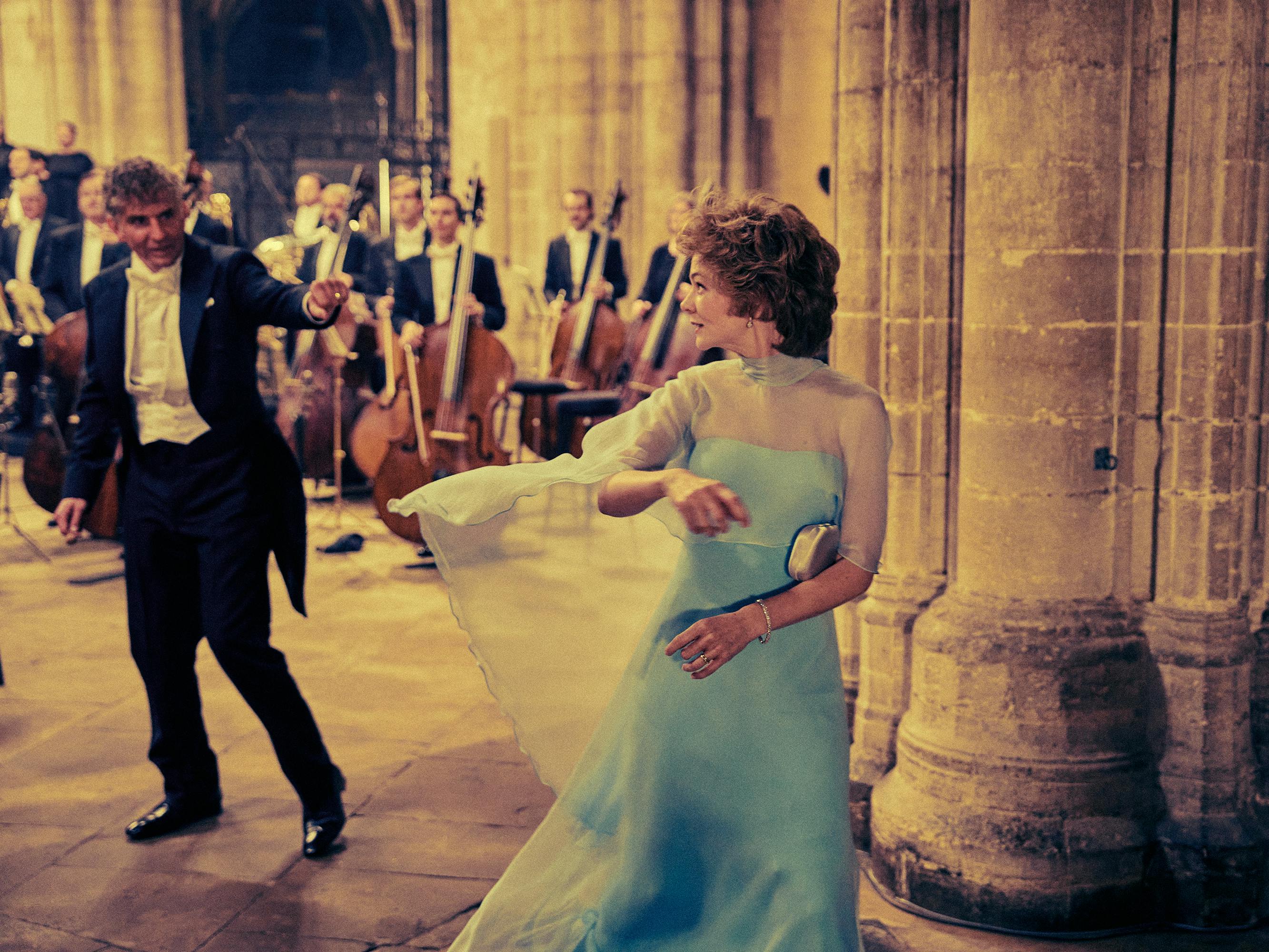
Leonard Bernstein (Bradley Cooper) and Felicia Montealegre Cohn Bernstein (Carey Mulligan)
The chemistry between our parents was so fluid and easy. Even when there was tension, the connection between them was so very strong, and they were able to get that. It comes through.
Nina Bernstein
As surreal as that call might have been for the Bernstein children, the experience of watching Cooper and Mulligan’s performances in the finished film was nothing short of mind-blowing. “He gets so many things right,” Alexander says of Cooper. “Obviously, he’s done an extraordinary job of looking like my dad and conducting like my dad. But just the general energy that he brings to the role — he didn’t know the guy at all, but his charisma, the way he would take over a room, the way he said the wrong thing sometimes, Bradley got so many of the details, it’s incredible.”
Jamie felt similarly about Mulligan’s performance as Felicia: “The thing about our mother is that she was so subtle. She was very hard to describe or encapsulate. She was quite her own creation and an interesting and unusual combination of elements that would be very hard to capture. I don’t know how Carey did it, but she did it. She captured some essence of our mother that made us gasp when we watched her.” Adds Nina: “The chemistry between our parents was so fluid and easy. Even when there was tension, the connection between them was so very strong, and they were able to get that. It comes through.”
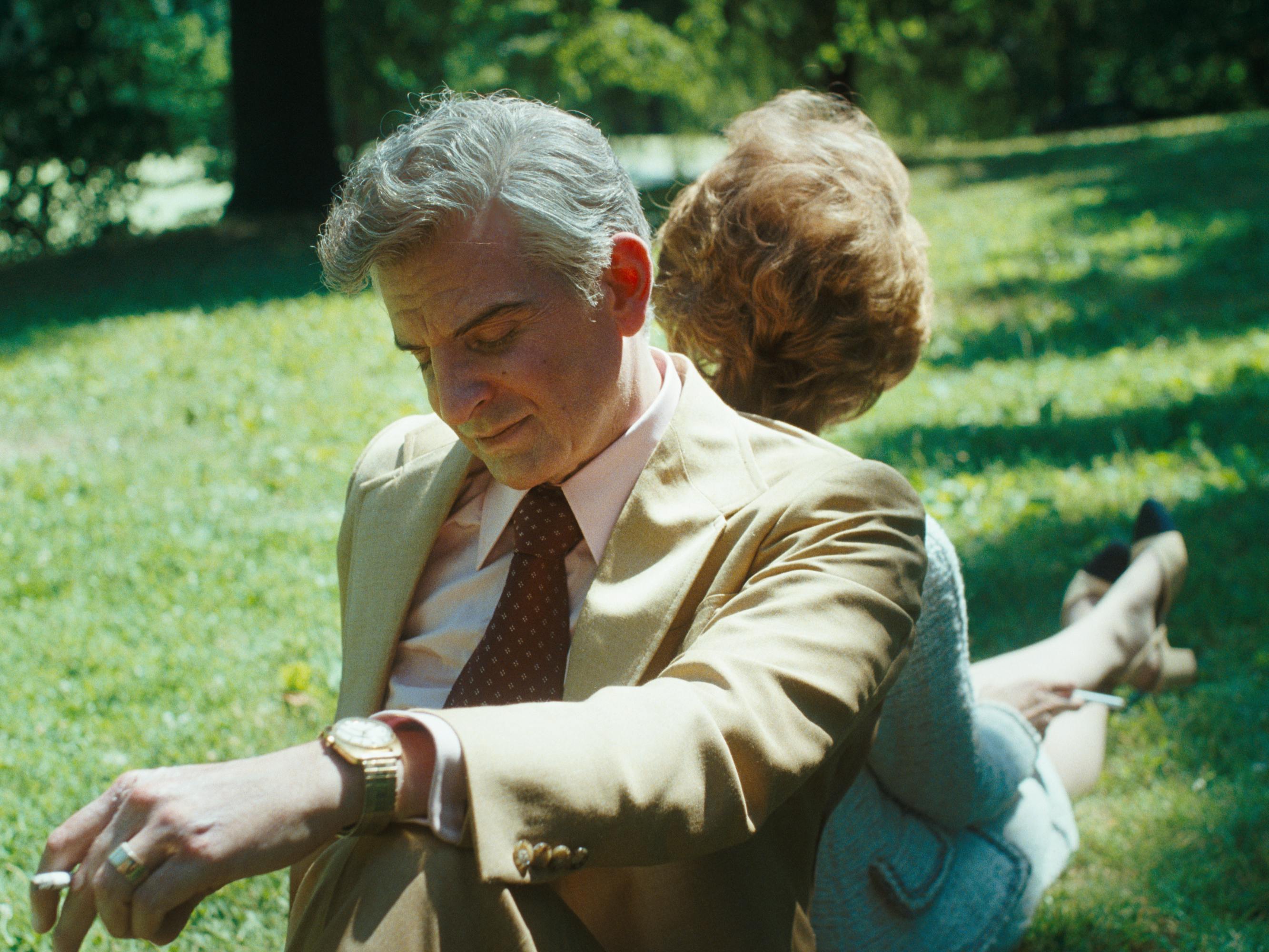
Leonard Bernstein (Bradley Cooper) and Felicia Montealegre Cohn Bernstein (Carey Mulligan)
These were extraordinary people who had an extraordinary experience of the world. But really what they had was just love . . . It’s all the richness of what a life lived together is like.
Carey Mulligan
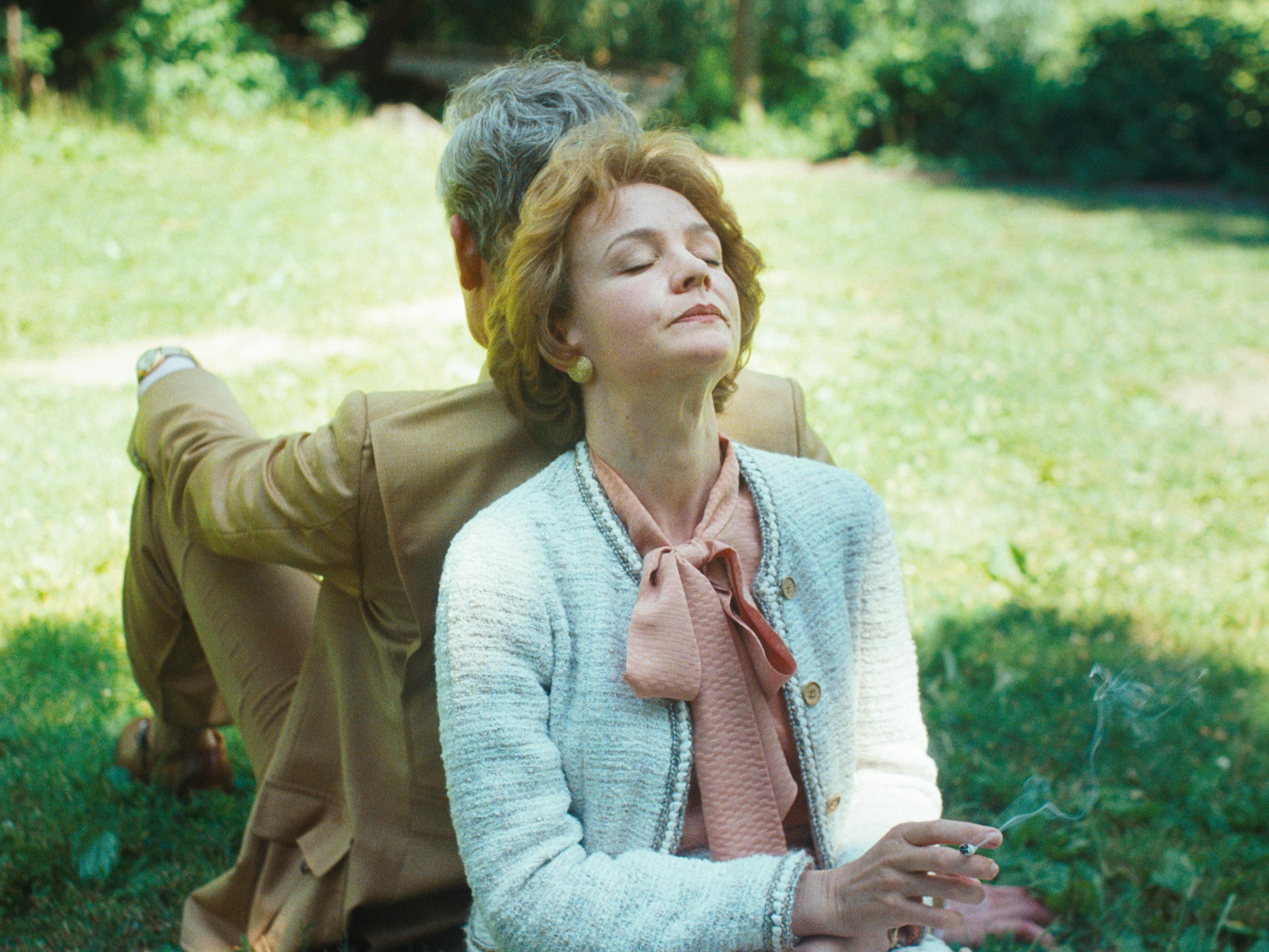
Leonard Bernstein (Bradley Cooper) and Felicia Montealegre Cohn Bernstein (Carey Mulligan)
Spielberg, too, was struck by, as he puts it, the “overwhelming incandescent grace” Mulligan brought to the role, and was also awed by the sheer brilliance of the film itself and the way it captured so many facets of its central characters’ lives. “Bradley’s portrait of Bernstein merges artist and subject to an extent that’s nothing short of uncanny,” Spielberg says. “The film, ultimately, is his vision of artistic, sexual, and romantic obsession, of great love and great loss, of familial bonds and terrifying loneliness.”
Ever since Maestro’s premieres at film festivals in Venice, New York, and London, critics, too, have marveled at the veracity with which Cooper and Mulligan channel the two soulmates who as individuals were luminaries, and as partners, represented two halves of a truly exceptional whole. “These were extraordinary people who had an extraordinary experience of the world,” Mulligan says. “But really what they had was just love and all the different ways in which love can be within a family: between siblings, between parents and their children. It’s all the richness of what a life lived together is like.”

Felicia Montealegre Cohn Bernstein (Carey Mulligan) and Leonard Bernstein (Bradley Cooper)
